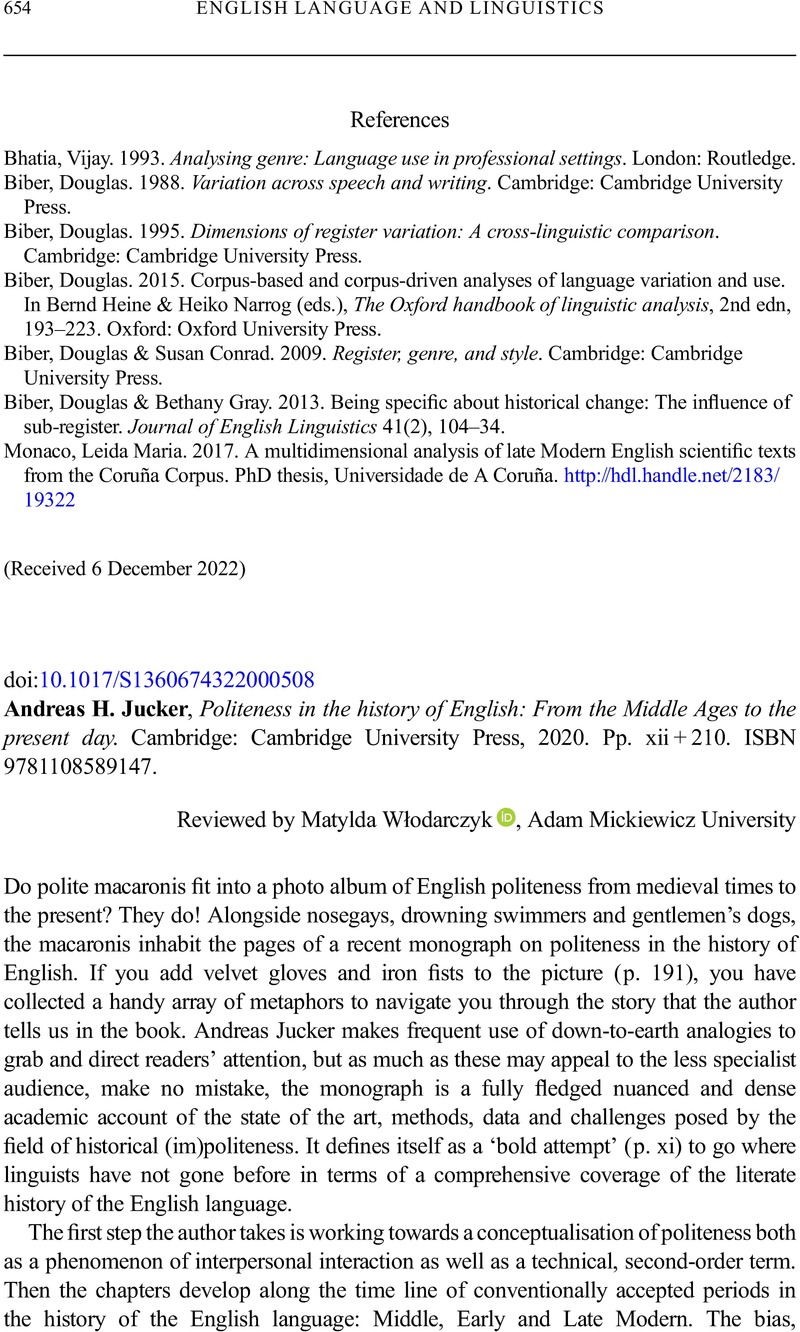No CrossRef data available.
Article contents
Andreas H. Jucker, Politeness in the history of English: From the Middle Ages to the present day. Cambridge: Cambridge University Press, 2020. Pp. xii + 210. ISBN 9781108589147.
Review products
Andreas H. Jucker, Politeness in the history of English: From the Middle Ages to the present day. Cambridge: Cambridge University Press, 2020. Pp. xii + 210. ISBN 9781108589147.
Published online by Cambridge University Press: 09 March 2023
Abstract
An abstract is not available for this content so a preview has been provided. Please use the Get access link above for information on how to access this content.

Information
- Type
- Book Review
- Information
- English Language & Linguistics , Volume 27 , Special Issue 3: Speech representation in Late Modern English text types , September 2023 , pp. 654 - 659
- Copyright
- Copyright © The Author(s), 2023. Published by Cambridge University Press
References
Culpeper, Jonathan & Demmen, Jane. 2011. Nineteenth-century English politeness: Negative politeness, conventional indirect requests and play texts, 1640–1760. Journal of Historical Pragmatics 18(2), 195–213.CrossRefGoogle Scholar
Kádár, Dániel & House, Juliane. 2020. Revisiting the duality of convention and ritual: A contrastive pragmatic inquiry. Poznan Studies in Contemporary Linguistics 56(1), 83–111.CrossRefGoogle Scholar
Kohnen, Thomas. 2008. Linguistic politeness in Anglo-Saxon England. Journal of Historical Pragmatics 9(1), 140–58.CrossRefGoogle Scholar
Taavitsainen, Irma & Jucker, Andreas H.. 2010. Expressive speech acts and politeness in eighteenth-century English. In Hickey, Raymond (ed.), Eighteenth-century English: Ideology and change, 159–81. Cambridge: Cambridge University Press.CrossRefGoogle Scholar
Tantucci, Vittorio, Culpeper, Jonathan & Cristofaro, Matteo Di. 2018. Dynamic resonance and social reciprocity in language change: The case of Good morrow. Language Sciences 68, 6–21.CrossRefGoogle Scholar
Walker, Terry. 2007. ‘Thou’ and ‘your’ in Early Modern English dialogues: Trials, depositions, and drama comedy. Amsterdam: John Benjamins.CrossRefGoogle Scholar


